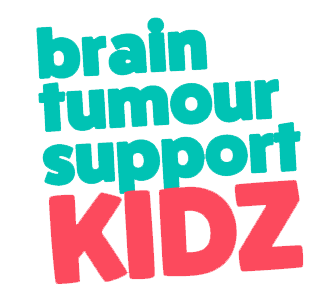
Family Relationships
Family Relationships
Managing stress in family relationships
Difficult times can highlight conflict and stress in relationships. A crisis puts strain on all relationships.
Caring for a child with a brain tumour is challenging and a team effort really helps. Communicating with your partner, co-parent or other family carers will become even more important.
Guilt, anxiety, exhaustion, and stress are common – be aware these can impact your relationships, so go easy on yourself.
Try to maintain communication and honour the experience of others. You are all under stress but everyone will have their own unique way of coping.
Be open and honest with your healthcare team regarding relevant family history or stressors.
Consider designating a close friend or other family member to serve as a “spokesperson” to keep wider family and friends informed and updated. It can be exhausting dealing with others’ emotions and stress responses.
Consider who else might support your family, such as culturally through kaumatua and kuia or spiritually through church based supports.
Find personal supports that are right for you.
The impact on brothers and sisters
Remember to keep in mind their age/developmental stage in how you talk to them about their brother or sister’s diagnosis, and what you expect from them
Young children will know something is wrong but may not understand what or why.
Children’s behaviour reflects how they feel. You may notice your child acts out, appears more clingy or is unusually aggressive. This is a reflection of your child’s feelings and struggle to process or understand their world.
Sometimes children’s eating or sleeping habits may change in response to stress or anxiety.
Spending quality time with your other children is reassuring for them and will help them feel that you are still there for them no matter what happens.
REMEMBER: If you are unsure about how to talk to your other children or if you have serious concerns about how they are coping, talk to your healthcare team about how they can help.
Ways to support siblings
Keep up the connection with your other children – they can feel as if all the attention and time goes to their unwell sibling
Address their fears and concerns. Common questions- “Can I catch it?” “Did I cause it?” “Will I get it?”
Provide basic information to reassure them based on their age and understanding
Involve them and encourage them to find their own way to help e.g. visit the hospital, send cards, or organise a bake sale to raise money for Brain Tumour Support NZ. Practical steps like this can help them process what is happening to your family and achieve a sense of control in their life.
Keep routines and familiar activities in place as much as possible
Keep consistent with family rules around behaviour although make allowance if they are struggling to cope.
Talking to wider family, friends and schools
Plan ahead
The initial talk can be hard. Firstly, ask yourself –
How private or open is your family about sharing difficult news?
How comfortable do you feel talking about emotional news?
Who do you want to tell first, if anyone?
When feels right to tell people?
What and who you choose to update will change over time. You will also face ongoing questions for updates from a lot of people so having a plan and some coping strategies for handling this is important for consistency and for your own self-preservation. Sometimes, choosing a nominated contact person to convey information may help. Giving updates through a private social media platform may also reduce the demand on you and provide support.
Aim for your child to receive consistent messages from everybody.
Work with the school to prepare a plan for sharing information based on your agreement on what can be passed on, who it is to be shared with and by whom. The education guide has more detailed information to help with this.
Sharing the news
Explain your child’s diagnosis and plans for current treatments. Be aware people may have fears and misconceptions from their past understanding and experiences with cancer.
Talk openly about your feelings at a level that is comfortable for you.
Let them know what help you need, and be honest if you do not want their input in decisions
Let your friends and family know how much can be shared outside your family/friends
It’s OK to say you’d like a break from talking about the brain tumour
Your friends might feel unsure whether they can discuss what is happening for you – ask them how they feel about the diagnosis
Be as specific as possible when people ask how they can help.
Many people want to help by offering information or advice – if you are not comfortable with this, let them know or change the topic.

Join our Support Group
Come and chat with our support group
